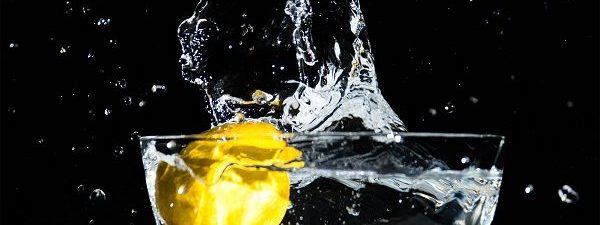We pee multiple times every day – but how often do we appreciate our kidneys which produced the urine?
The kidneys filter our blood, removing waste products and excess water. Without this removal of toxins, our cells would quickly back up and not be able to function!
I have seen a series of patients recently who have a lowered function of their kidneys as evident on blood tests.
I am helping them to optimize the function of their kidneys with individualized biotherapeutic drainage, but such a medical treatment works best when the kidneys are nourished and supported through what we do in our lifestyle.
Healthy Kidney Lifestyle
Whether you are simply wishing to practice staying healthy, or wish to improve kidney function, let’s look where in our daily lives we can appreciate, support, and nourish our kidneys.
The first thing to look at is fine-tuning what we eat. It is easy to generalize what to avoid and what to include for the kidneys, because it is just about the same as for general health. Those things that damage health in general to avoid include:
- refined sugar, including all the various colors of sugar as well as corn syrup, sucrose, glucose, fructose
- refined oils, including plant oils like canola, safflower, sunflower as well as those in processed meats
- processed food, such as anything that comes in a package or box
- junk food – you know what that is!
Some patients with kidney disease are told by their doctors to limit sodium, phosphorus and potassium. This is individual to the stage of kidney disease and the patient.
Foods to Include
Instead, it is best to eat nutrient-dense foods which do not cause inflammation in your particular body. You may need to experiment with a wide variety of fruits, vegetables, fats and proteins appropriate to you.
In addition, certain foods have been studied to especially benefit kidney health.
1. Citrus such as lemons and limes
Lemons contain citric acid, which may help to break down small kidney stones and benefit kidney health.
According to a 2014 study in the Korean Journal of Urology, It showed that drinking 4 ounces of lemon juice a day can make a difference in kidney health.
Limes also contain citric acid and have a similar benefit. It turns out that those people creating kidney stones often have a low urinary citrate. Eating foods like lemons and limes can be an important way to prevent kidney stones, according to a 2014 study in the Korean Journal of Urology.
2. Berries
Berries in general and blueberries in particular, are great for their antioxidant and kidney-health benefits.
Eating a diet rich in blueberries improved kidney function in animals, and may work for us, according to a 2014 study published in PLoS One.
3. Beets
Beets are not only great for your kidneys, but also your liver. According to a 2020 review published in Nutrition & Metabolism, beetroot may be beneficial for increased kidney function among those with kidney disease.
4. Celery
Celery contains antioxidants and lots of water, both of which may aid kidney health.
Rats studied and published in 2019 in the Journal of Pharmacy and Bioallied Sciences, showed that celery may help to dissolve kidney stones.
5. Onions & Garlic
Onions and garlic are in the same family of vegetables, and have lots of health-building properties. Some famous benefits are for heart disease and high blood pressure.
Another of these benefits is to reduce the risk of chronic kidney disease by about 32%, according to a 2017 study published in the Journal of Hypertension.
Herbs and Spices
Nature provides some powerful herbs that support your kidneys as well as health in general. You can add these when you cook, make tea out of them, or perhaps use them as a supplement.
1.Parsley and Cilantro
Parsley is high in antioxidants, and also highly anti-inflammatory.
According to a 2018 study published in the International Journal of Molecular Science, parsley has diuretic properties and may help to prevent the formation of kidney stones (19).
Cilantro is spicier than parsley and also has antioxidants. It was studied in rats to protect against gentamicin-induced renal damage, according to a study published in Interdisciplinary Toxicology.
2. Horsetail
The herb Horsetail has been traditionally used as a tea for the kidneys, including for kidney stones.
It was studied to help flush out fluids and benefit the kidneys in a 2014 randomized, double-blind clinical trial published in Evidence-Based Complementary Alternative Medicine.
However, the National Kidney Foundation warns against the use of horsetail in those who have a kidney transplant, are on dialysis or have chronic kidney disease.
3. Milk Thistle
This powerful herb, Milk Thistle, is famous for its effect on the liver, but it also may help improve kidney activity. In a rat study published in 2010 in the journal Renal Failure, milk thistle helped prevent diabetic nephropathy.
Milk Thistle contains phosphorus, and is contraindicated for those on kidney dialysis and with some stages of chronic kidney disease, according to the National Kidney Foundation.
Other Ways to Nurture Kidneys
What nurtures your body also nurtures your kidneys. Some of these are common sense, and are sure to increase your kidney health.
1.Daily Movement
Hey, this goes without saying, but is worth mentioning anyway.
Move, and have fun with it! Get out in Nature. Move all parts of your body in a way that feels good.
Walk, hike, climb, bike, stretch, dance, and most of all . . . play!
2. Optimize Hydration
Drinking quality water is vital for health, and so much more so for kidney health.
Science even says so in a 2014 study in Obesity Facts. It showed that increased hydration may slow kidney disease.
Filter your water, if needed, and be sure to revitalize it so that it can be absorbed into your cells and do the detoxification job it is designed to do. I recommend Natural Action Water Units to revitalize your water as in Nature.
3. Move your Lymphatics
The lymphatic system is how your body gets water back from the tissues into blood circulation. This is important to the whole process of detoxification through the kidneys.
Lymphatic flow is primarily dependent on body movement. Therefore, see #1 above.
In addition, bouncing as on an exercise ball or rebounder can help move the body fluids, as well as dry skin brushing.
4. Massage Kidney Reflex Points
There are points on the palms of your hands and bottoms of your feet which relate directly to your kidneys. That is why they are called reflex points.
Consult a diagram for the exact locations. In general they are near the base of the thumbs and at the center of the foot, just below the pad.
A gentle massage of these points can help, especially if they feel sore at first.




